From 1965 to 1973, Trinh Thi Ngo, better known as Hanoi Hannah, hosted a radio segment for a North Vietnamese propaganda station that aimed to destroy the morale of American troops.
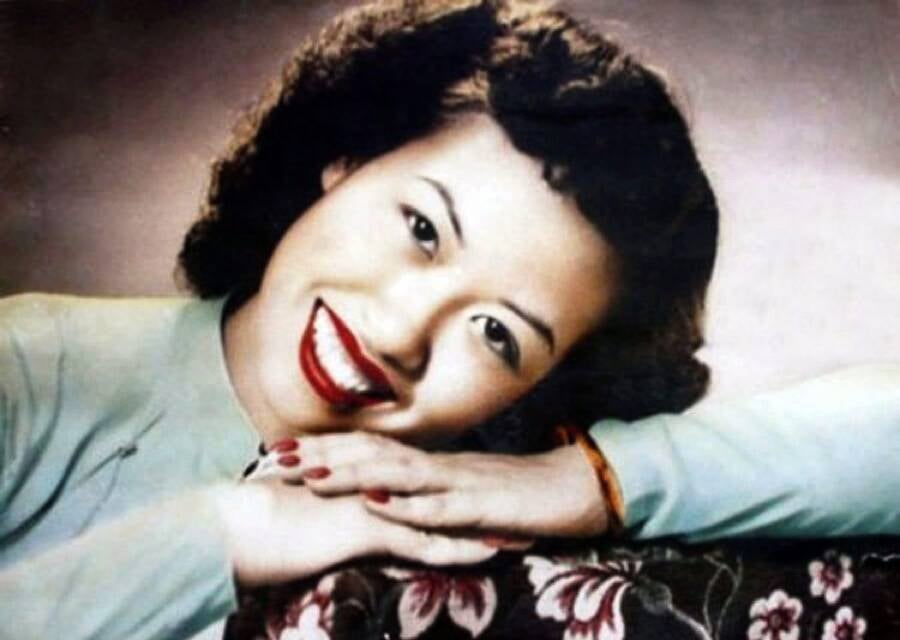
CPA Media Pte Ltd/Alamy Stock PhotoHanoi Hannah broadcast messages to U.S. troops from 1965 to 1973.
For U.S. troops serving in the Vietnam War, a radio was a priceless possession. Soldiers could listen to music or news, but many also picked up another voice: that of Hanoi Hannah, a North Vietnamese broadcaster whose job was to discourage the enemy as much as possible.
For eight years, from 1965 until 1973, she spread messages in impeccable English meant to dampen the resolve of American troops. The U.S. government, she claimed, was “lying.” The war was “a sinking ship.” Policymakers back in Washington, D.C. had “ordered you to die.”
Her messages might not have been as effective as she wanted — some veterans remember laughing at her broadcasts while drinking beer — but Hanoi Hannah’s voice did leave an impression. Even decades later, the American soldiers who fought in Vietnam, or who were imprisoned by the North Vietnamese during the conflict, remembered her vividly.
A Privileged Upbringing In Vietnam
Hanoi Hannah, whose name was Trinh Thi Ngo, was born in 1931 in Hanoi, Vietnam, when the country was still under French colonial rule. Her father owned the largest glass company in the country, and Ngo enjoyed a privileged upbringing. For example, she loved American films — especially Gone with the Wind — so her family arranged for her to take private English lessons so she could watch movies without French or Vietnamese subtitles.
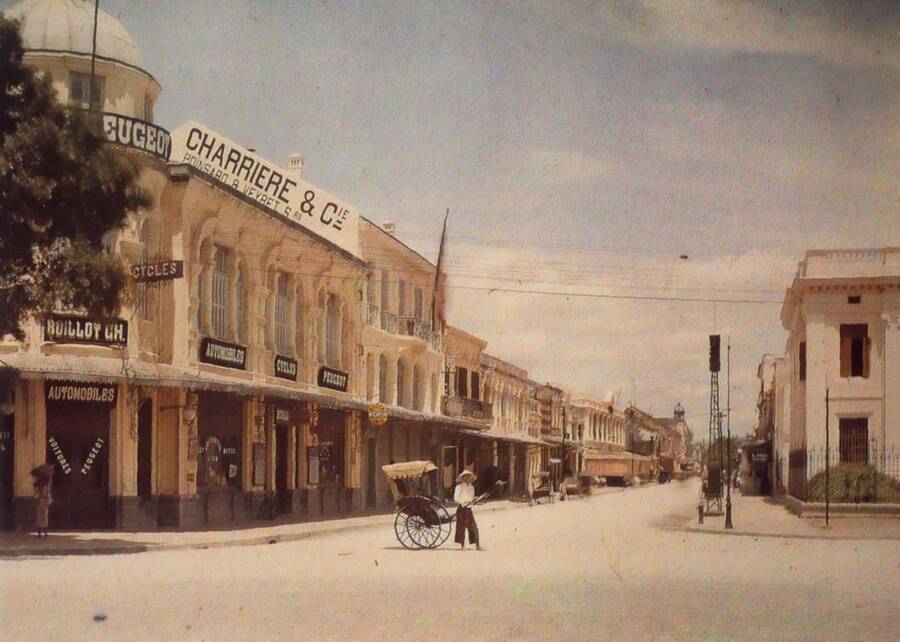
Albert Kahn MuseumHanoi in 1915, when Vietnam was still a French colony.
In 1955, Ngo volunteered with the Voice of Vietnam, the country’s largest radio broadcaster. Her impeccable English helped her stand out, and Ngo was soon hired to read the news under the name Thu Huong.
But things had started to change in Vietnam. In 1945, Communist leader Ho Chi Minh declared North Vietnam to be independent and began to fight back against French colonial rule. The United States, worried that the fall of French Vietnam could create a “domino” effect in Asia, began to pour resources into the conflict. And America officially entered the Vietnam War following the Gulf of Tonkin incident in 1964.
At that point, Trinh Thi Ngo’s role at the Communist-run Voice of Vietnam began to change, too. Broadcasting anti-American messages from the capital of North Vietnam, she soon became known as Hanoi Hannah.
“Our program served for a cause, so we believed in that cause,” she told C-SPAN in a 1992 interview. “So we continued to broadcast.”
Becoming Hanoi Hannah During The Vietnam War
For eight years, from 1965 to 1973, Hanoi Hannah regularly broadcast radio messages meant to discourage the American forces in Vietnam. Her broadcasts soon grew from five minutes to 30 minutes, airing three times per day.
Ngo would list the names of American troops who had been killed, read news articles about anti-war protests back in the U.S., and play anti-war songs like Pete Seeger’s “Where Have All the Flowers Gone?” and the Animals’ “We Gotta Get Out of This Place.” She also spoke directly to the soldiers, telling them that they were doomed and that the war was already lost. She encouraged them to assassinate officers and, trying to get under their skin, would insinuate that their wives and girlfriends were unfaithful.
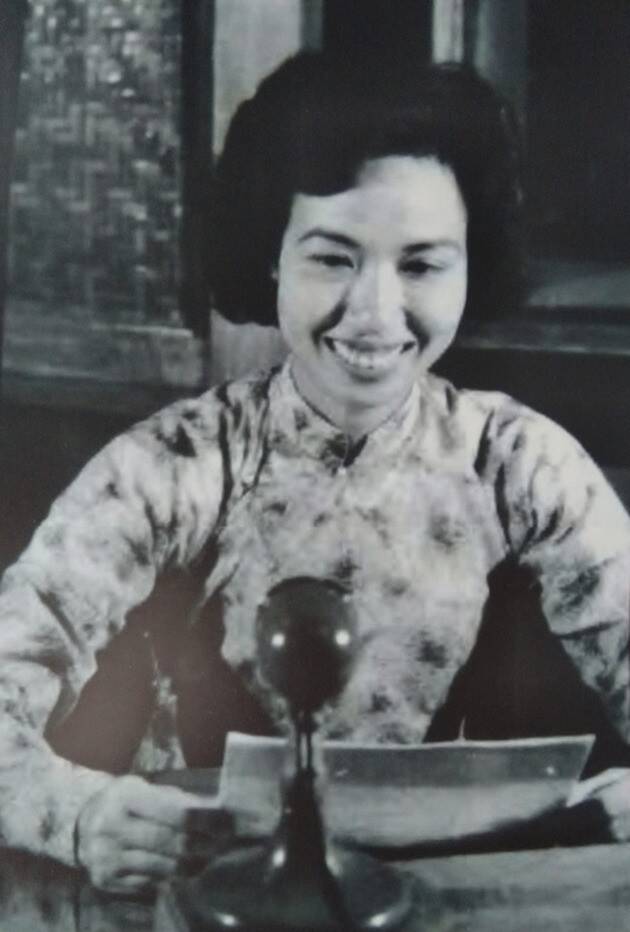
Public DomainThough Trinh Thi Ngo’s broadcasts were originally just five minutes long, they were soon lengthened to 30 minutes and aired three times each day.
“GI, your government has abandoned you. They have ordered you to die,” Hanoi Hannah warned in one radio message. “Don’t trust them. They lied to you, GIs, you know you cannot win this war.”
“How are you, GI Joe?” started another. “It seems to me that most of you are poorly informed about the going of the war, to say nothing about a correct explanation of your presence over here.”
And another Hanoi Hannah message stated: “Defect, GI. It is a very good idea to leave a sinking ship. They lie to you, GI. You know you cannot win this war.”
Before long, the American troops started calling Ngo “Hanoi Hannah.”
“On the air, I often introduced myself: ‘This is Thu Huong calling American Servicemen in South Vietnam,'” she wrote for the Voice of Vietnam in 2014.
She continued: “But American soldiers called me Hanoi Hannah. Many foreign reporters asked me about that name and I said: ‘Maybe because the program was broadcast from Hanoi. Hannah is an American woman’s name that starts with the letter H and my name Huong also starts with the letter H. American soldiers liked word games. I didn’t care what American soldiers called me. What mattered was that they listened to our radio programs for which they were the target audience.'”
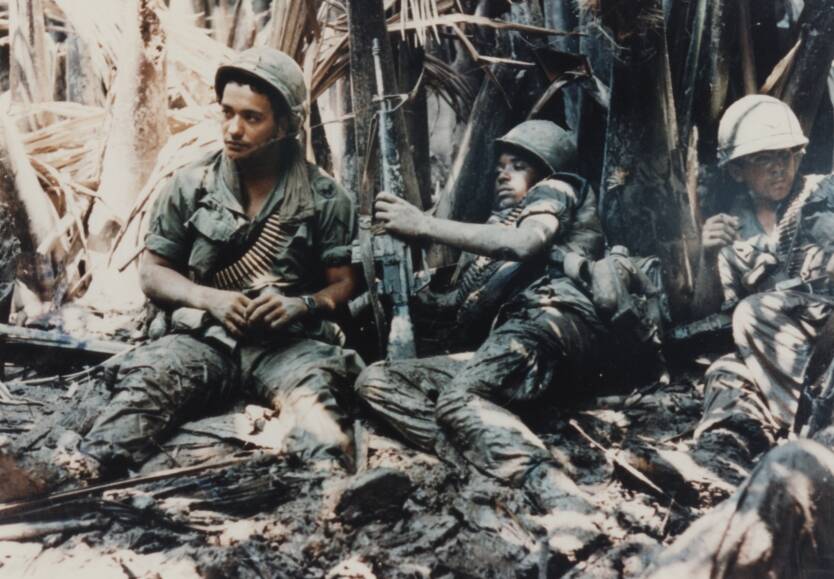
Public DomainU.S. soldiers in Vietnam. During the war, radios provided entertainment — even if it meant listening to Hanoi Hannah.
According to a 2018 report in The New York Times by Don North, who was an ABC News correspondent during the Vietnam War, most of the men listened to Hanoi Hannah to get a laugh — and because they liked her voice — but they didn’t appreciate it when she broadcast taped interviews with anti-war advocates like Jane Fonda. And men imprisoned in the infamous “Hanoi Hilton” were forced to listen.
“I heard Hannah every day,” John McCain, who spent five years in the notorious prison, later remarked. “She was a marvelous entertainer. I’m surprised she didn’t get to Hollywood.”
But Hanoi Hannah also broadcast important news about the war, news that the American media suppressed. For example, North wrote that she was among the first to spread the story of the My Lai Massacre, which was perpetrated by a U.S. soldier named William Calley. Because Ngo got one detail wrong — the name of the American Army division — the U.S. claimed she was just spouting propaganda. But Ngo’s intel was very real.
That said, Ngo was a propagandist — and she rarely reported about U.S. victories or North Vietnamese losses in her radio broadcasts.
And when the Vietnam War ended following the Fall of Saigon in 1975, Trinh Thi Ngo retired Hanoi Hannah for good.
Hanoi Hannah’s Life After The Vietnam War
At the end of the Vietnam War, Trinh Thi Ngo moved to Ho Chi Minh City with her husband. There, she found work with Ho Chi Minh City Television. Ngo rarely spoke to the press, but she did tell C-SPAN that her son ended up moving from Vietnam to the United States.
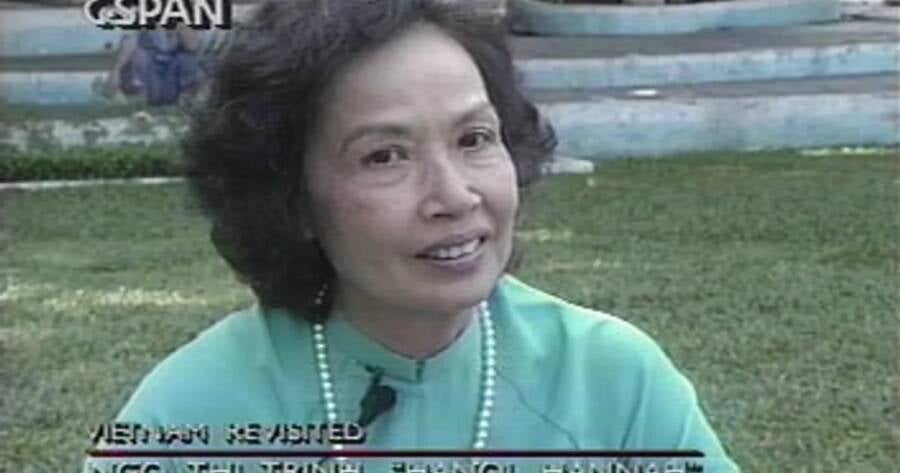
C-SPANTrinh Thi Ngo giving a rare interview to Western media.
And when North returned to the country in 1978, he got an opportunity to speak with Hanoi Hannah, the woman whose voice he’d only ever heard on the radio. She struck him as “elegant and attractive,” and she was willing to talk about her own experience during the war.
“When the bombs came on Hanoi, I did feel angry,” she told North. “To the Vietnamese, Hanoi is a sacred ground. But even then, when I spoke to the GIs I tried always to be calm. I never felt aggression toward Americans as a people. I never called them the enemy, only adversaries.”
And even in 1978, when the conflict was still fresh, Ngo told North that she did not hold onto any anger toward the U.S.
“Let’s let bygones be bygones,” Ngo said. “Let’s move on and be friends. There will be many benefits if we can be friends together. There is no reason to be enemies.”
Trinh Thi Ngo died on Sept. 30, 2016, at the age of 85. But for veterans of the Vietnam War, an echo of her voice, broadcasting warnings, threats, and anti-war music, might still live on.
After reading about Hanoi Hannah, discover the story of Võ Thị Thắng, the North Vietnamese revolutionary who famously beamed for the camera when the South Vietnamese sentenced her to prison. Or, learn about Thích Quảng Đức, the Vietnamese monk who burned himself alive in 1963.





